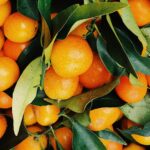Copa-Cogeca calls for immediate action on South African citrus

European agricultural cooperative Copa-Cogeca has submitted a letter to EU commissioner Tonio Borg requesting immediate blockage of South African citrus imports that may pose a risk of black spot.
The European Standing Committee on Plant Health will discuss a draft proposal on restricting South African citrus shipments at its meeting on April 29-30 in Brussels.
A similar proposal was submitted for committee discussion at its meetings in March and November. The topic of black spot risk from South African citrus has been on the committee's agenda repeatedly since September.
Copa-Cogeca's most recent request cites the European Food Safety Authority report from February that found existing measures for preventing black spot entrance as appropriate.
The EU had established a limit of five black spot detections in South African citrus imports before implementing a ban on the fruit. Detections had reached 36 by season's end, however.
"The EU Commission presented a proposal to strengthen controls on citrus fruit imports coming into the EU from South Africa in March. And although this was a step in the right direction, it must be improved to be in line with EFSAs report," said Copa-Cogeca secretary-general Pekka Pesonen in a press statement.
He called on an immediate ban once six detections had been reached for South Africa and all other citrus suppliers.
"We welcome the introduction of measures at packaging stations to inspect fruit for the fresh produce market, which would be based on taking samples, registering operators and improving the traceability of batches," Copa-Cogeca said.
The organization cited Directive 2000/29/EC which regulates Guignardia citricarpa, the fungus that causes black spot. Due to the high number of interceptions last season, Copa-Cogeca said the policy had not been enforced, creating concern of compliance failure once again this year.
"This derogation could lead to the introduction and spread of the harmful organism across the EU, which is unacceptable based on EFSA's most recent report," the organization said.
"Copa-Cogeca therefore calls on the EU Commission and Member States to take immediate action to stop imports of citrus fruit from South Africa at the EU Standing Committee on Plant Health next week."
Related stories: Spanish association calls on EU to close borders to South African citrus
EU: EFSA releases citrus black spot assessment
EU tightening could pose “huge danger” for global citrus industry















































